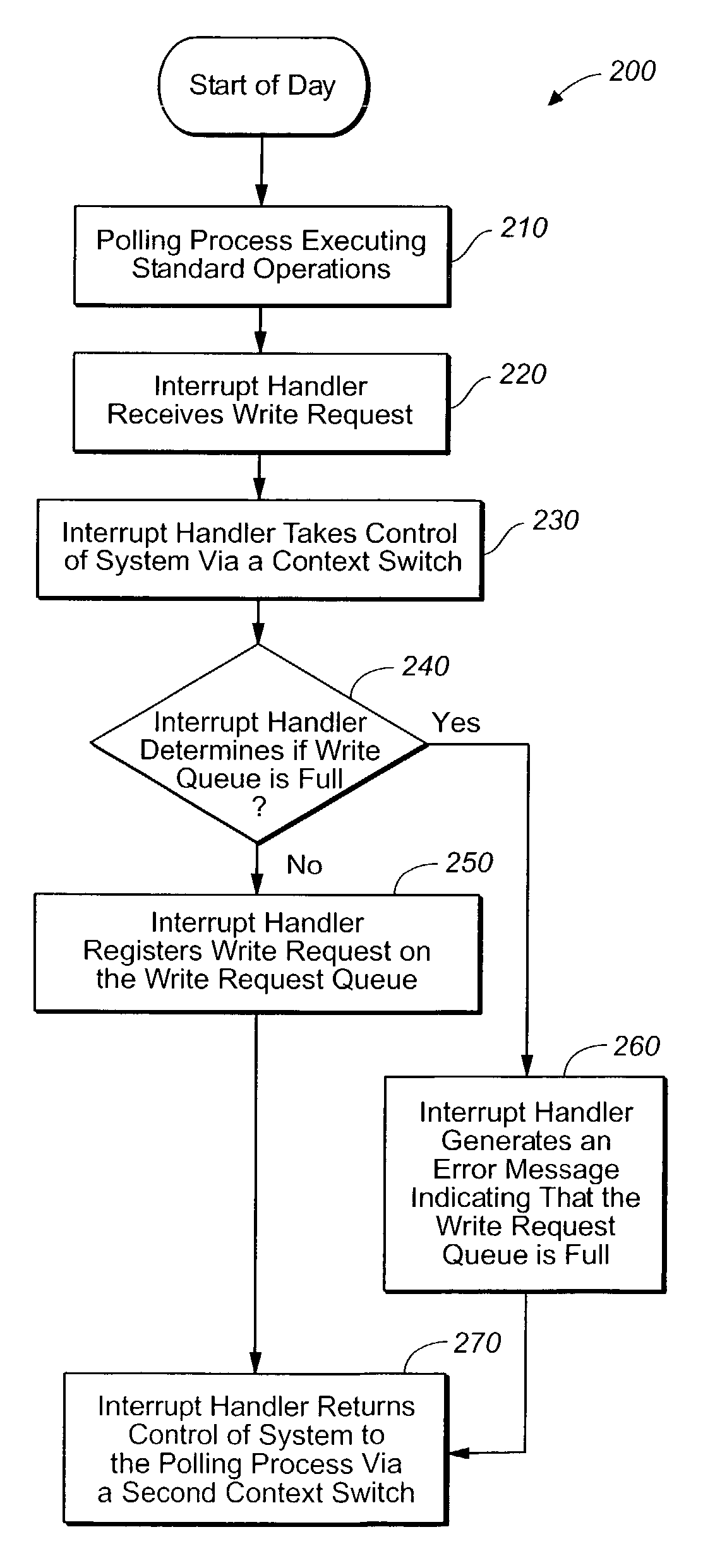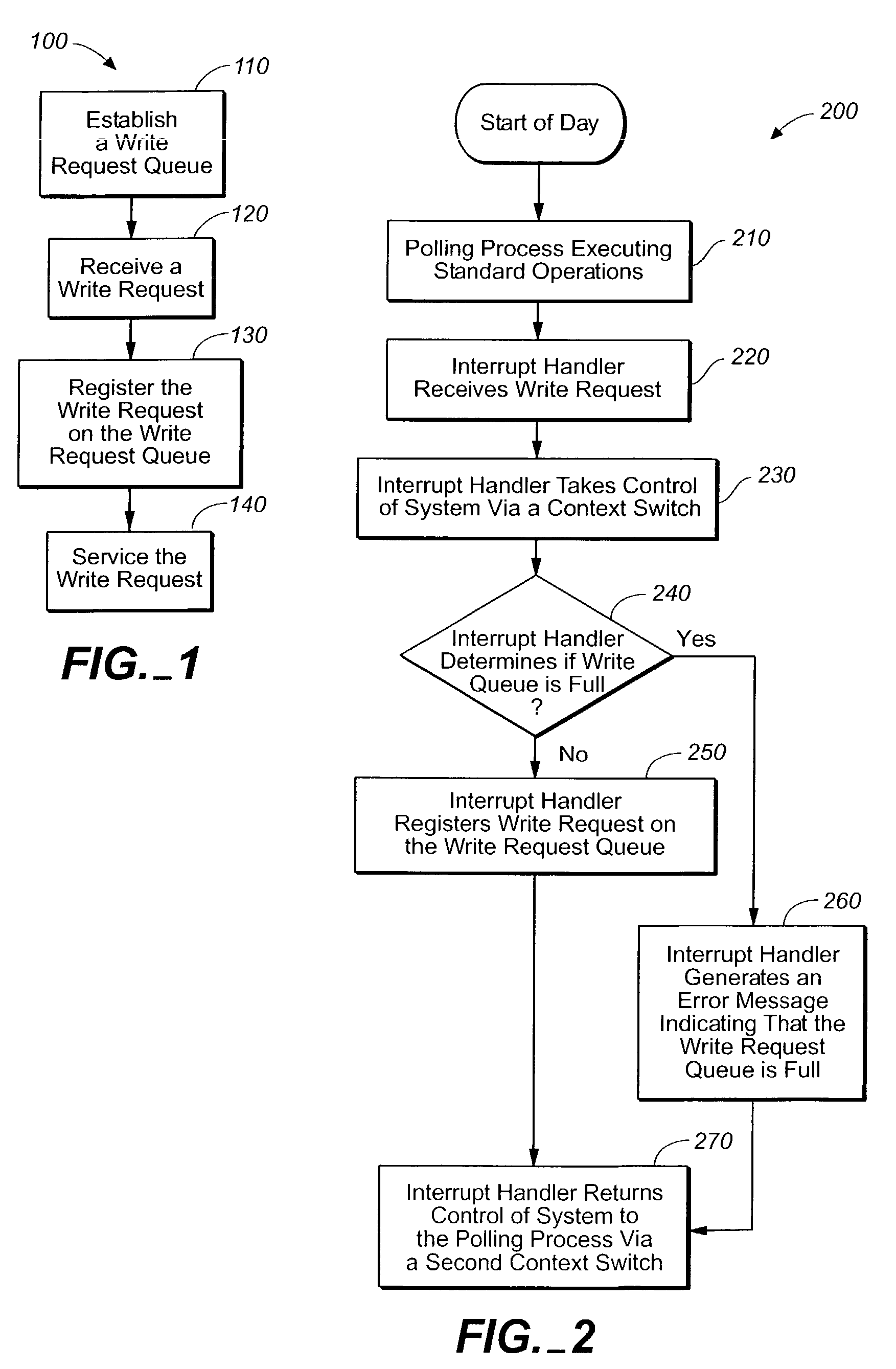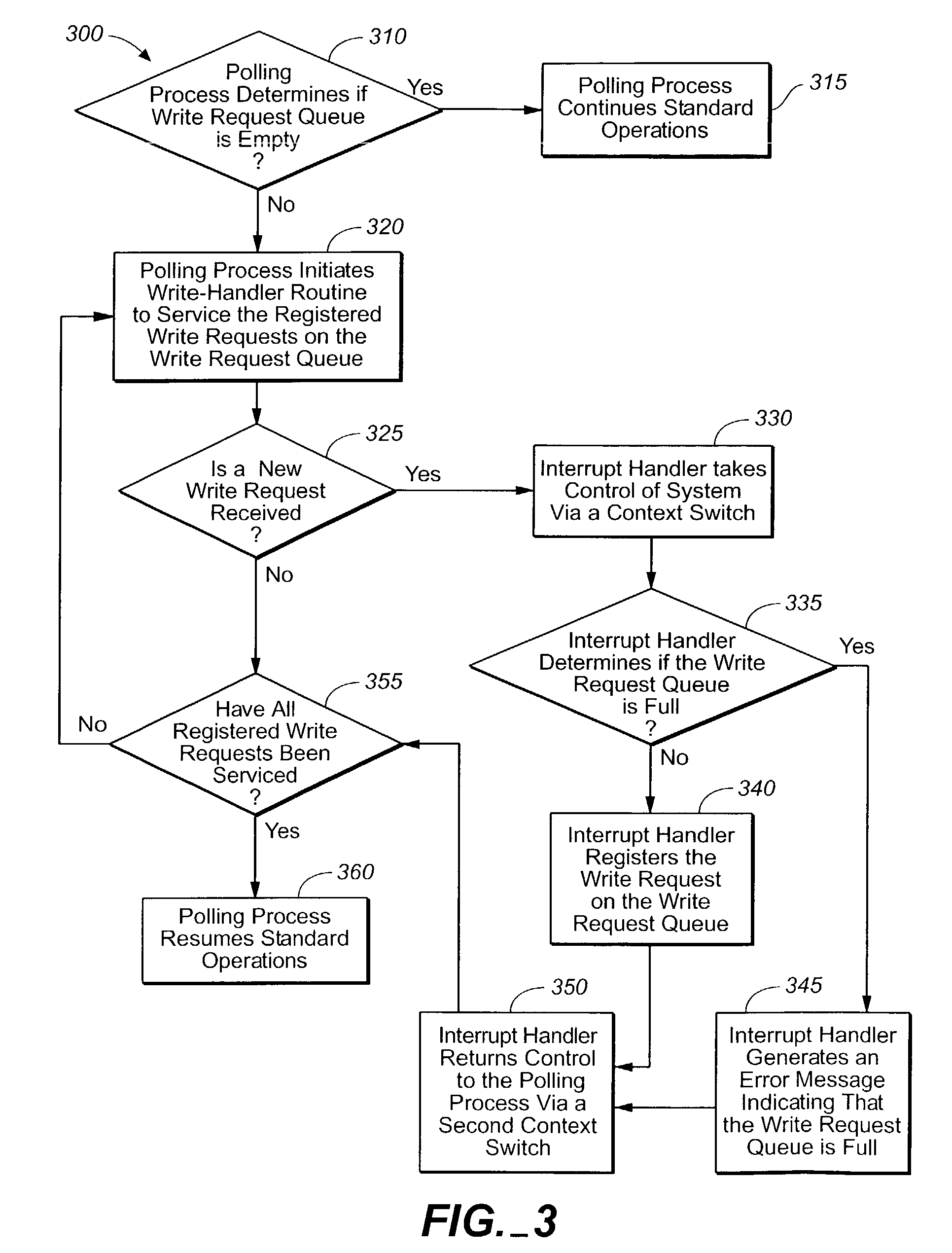System and method for handling shared resource writes arriving via non-maskable interrupts (NMI) in single thread non-mission critical systems with limited memory space
- Summary
- Abstract
- Description
- Claims
- Application Information
AI Technical Summary
Benefits of technology
Problems solved by technology
Method used
Image
Examples
Embodiment Construction
[0026]Reference will now be made in detail to the presently preferred embodiments of the invention, examples of which are illustrated in the accompanying drawings.
[0027]Referring generally now to FIG. 1 a method 100 for the handling of a write request (interrupt request) within a single thread system is shown. Step 110 creates a queue within the single thread system. The queue, in this algorithm, is included in software installed on a single thread system. In application, the queue is a temporary storage location and servicing platform for write requests.
[0028]The queue is a global limited size queue with each queue element describing the type of write request and the corresponding parameter. The maximum capacity of write requests registered on the queue is represented by the variable (QUE_LEN). Two variables are used to indicate the start (START_INDX) and end (END_INDX) indices of the queue. Additionally, two other variables are used to monitor the write request count (REQ_CNT) and...
PUM
 Login to View More
Login to View More Abstract
Description
Claims
Application Information
 Login to View More
Login to View More - R&D
- Intellectual Property
- Life Sciences
- Materials
- Tech Scout
- Unparalleled Data Quality
- Higher Quality Content
- 60% Fewer Hallucinations
Browse by: Latest US Patents, China's latest patents, Technical Efficacy Thesaurus, Application Domain, Technology Topic, Popular Technical Reports.
© 2025 PatSnap. All rights reserved.Legal|Privacy policy|Modern Slavery Act Transparency Statement|Sitemap|About US| Contact US: help@patsnap.com



